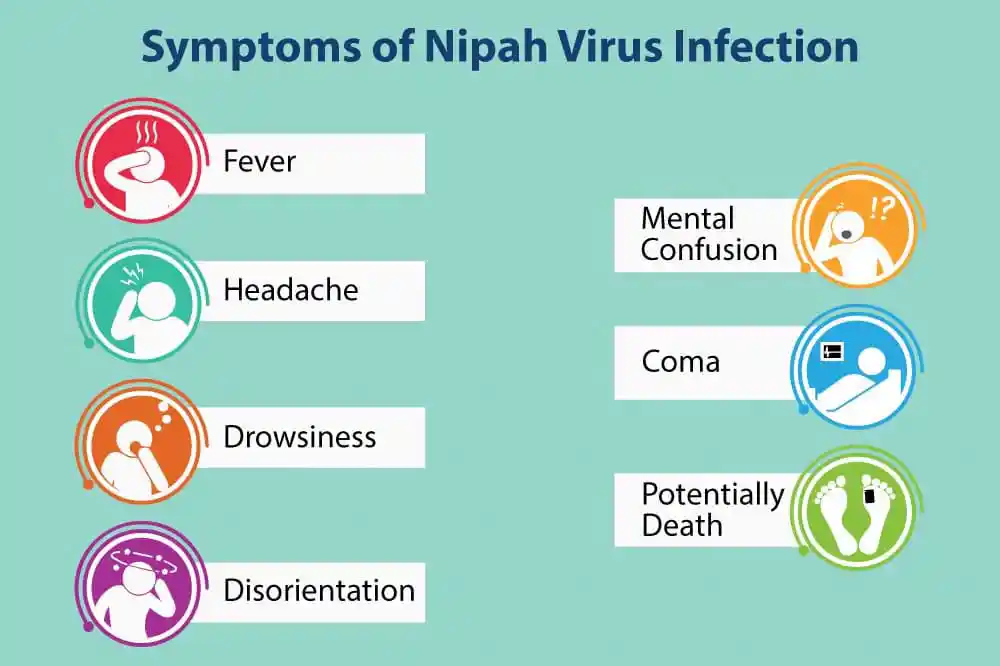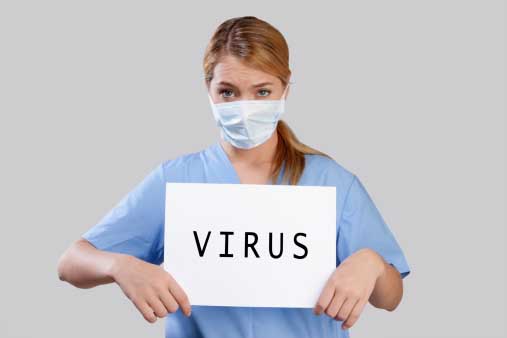Key Facts About Nipah Virus And Precautions To Prevent It
Nipah Virus (NiV) is a highly contagious infection that causes deadly diseases in both animals and humans. Read here some key facts about this emerging fatal virus, and also explore 8 crucial precautions that you and your family members can practice to stay protected.
What are the Symptoms of NiV Infection?

Following are the symptoms that can be observed in a person infected with the NiV:
- Flu-like symptoms of fever, headaches, muscle pain, vomiting, and sore throat
- Stomach pain and choking
- Blurred vision, dizziness, and drowsiness
- Altered consciousness and signs of 'Encephalitis -- an inflammation of the brain caused by infection or an allergic reaction'
- Severe respiratory problems, including pneumonia or acute respiratory distress
- Seizures leading to coma within 24 to 48 hours of the incubation of the NiV infection.
If you notice any of the above signs, report immediately to the doctor for an early diagnosis and care.
How Does It Get Transmitted?

The primary host of NiV virus is fruit bats and pigs. It is believed that eating fruits or fruit products (such as raw date palm juice) contaminated with urine or saliva from an infected fruit bat can cause the NiV infection in humans.
The infection is highly contagious in nature. So, it is recommended to avoid sharing food, bed, and washroom with an infected patient.
Family members and the medical staffs are advised to remain particularly careful and follow all the precautions to stay safe.
What are the Treatment Options for NiV Infection?

For now, there is no cure for the Nipah Virus. No vaccination is available for this lethal disease. If the infection gets identified, make sure to keep the patient well hydrated and take him/her immediately to the doctor for effective and timely control of the infection.
What Should You Do to Stay Protected?

Here’s all you need to do to stay protected and avoid getting infected:
- Avoid exposure to bats and pigs
- Avoid fruits sourced from the infected areas
- Avoid consuming pork in the infected areas
- Avoid drinking toddy (date palm sap) brewed in open containers near palm trees
- Avoid visiting the endemic areas such as Malaysia, Bangladesh, and Kerela and Karnataka in India
- Maintain a high level of personal hygiene
- Report any initial symptoms immediately to the doctor
- Isolate the patient if the infection gets identified.
Needless to say that as it’s comparatively a new and rare virus so staying vigilant is highly important. Spread awareness and stay safe!
For any query related to Nipah Virus and other infectious diseases, consult an Internal Medicine Specialist at www.healthcaremagic.com
Ask a Specialist
Recent Questions


